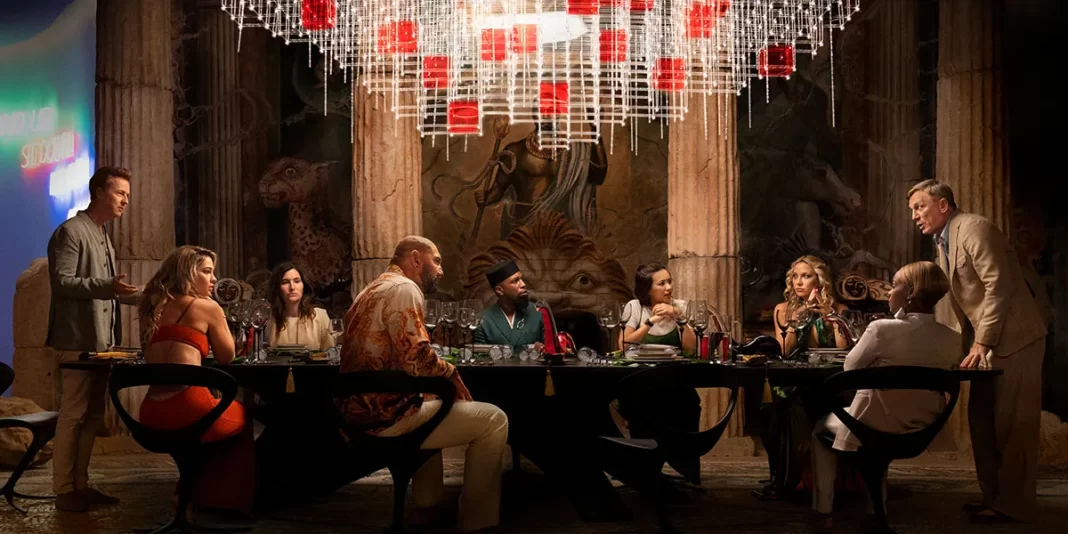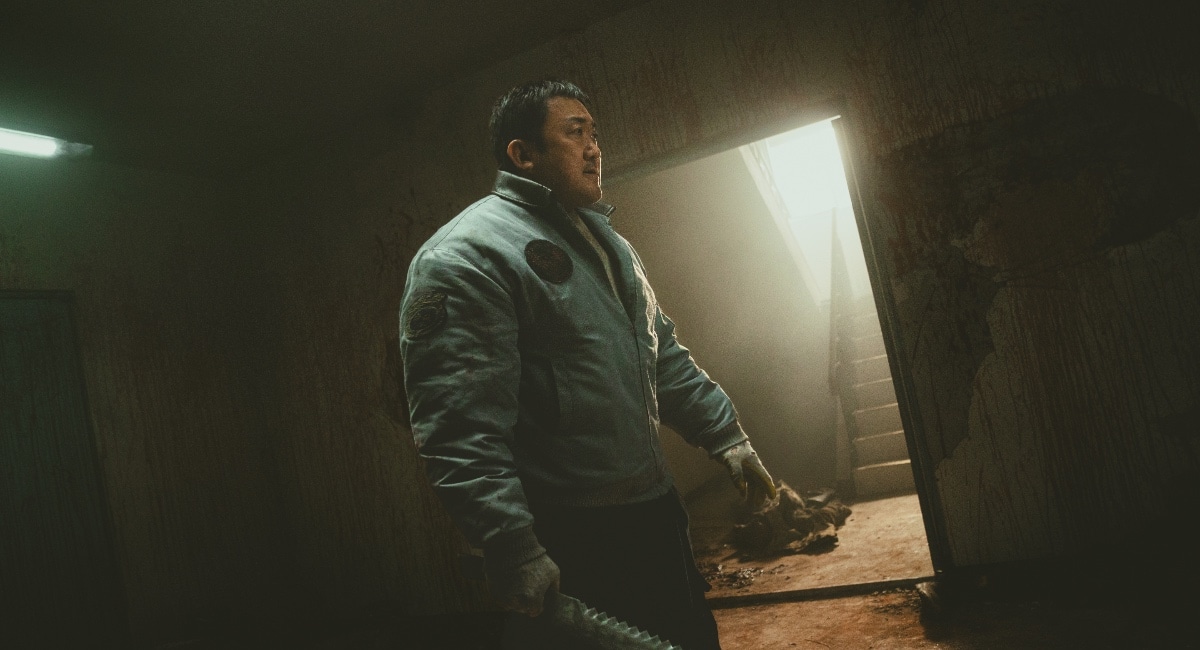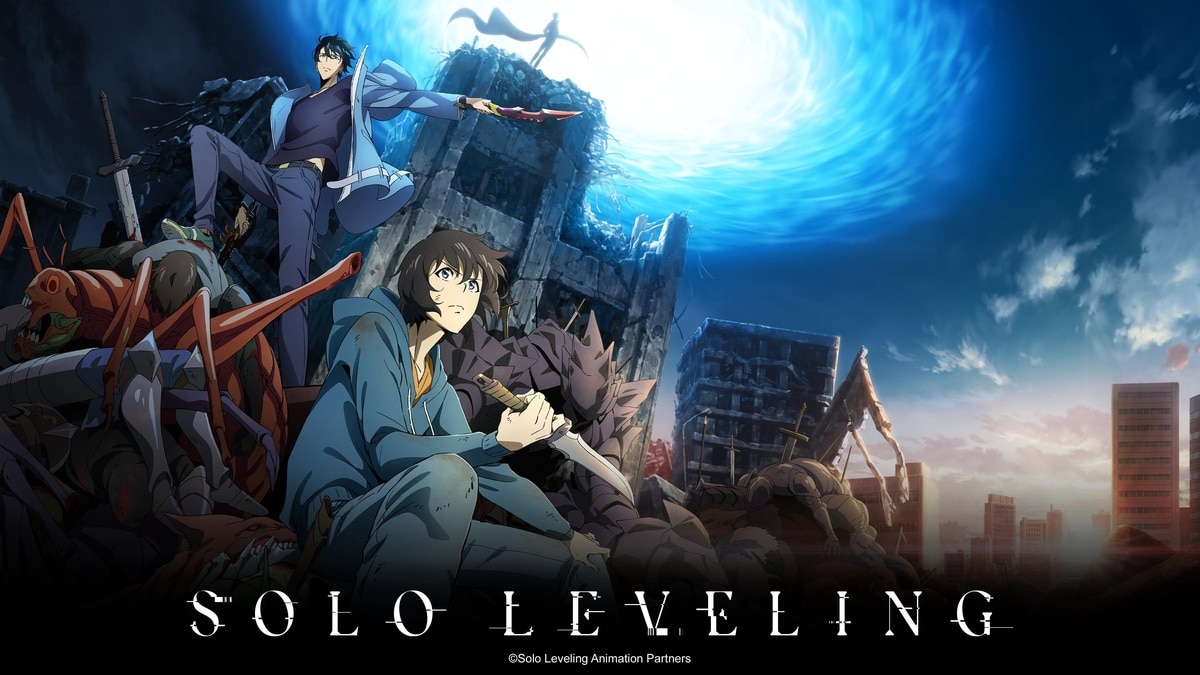Glass Onion: A Knives Out Mystery was arguably one of the most popular films at the Toronto International Film Festival, winning second runner-up in the festival’s People’s Choice Awards. The star-studded sequel to Rian Johnson’s surprise 2019 hit, Knives Out, ups the ante in just about every way: a larger and more famous cast, a massive budget, and a tropical location. But does bigger always make for better?
Glass Onion once again features Daniel Craig as Benoit Blanc, this generation’s answer to Sherlock Holmes, who is up against a different type of murder mystery. Invited to a private island murder-mystery get-away for the billionaire disrupter Miles Bron (a well-cast Edward Norton), Blanc appears to be involved in a recreational game of whodunit – until, as you guessed it, a real murder materializes. As Blanc interrogates Bron’s guests, each of whom appears to be a true frenemy to Bron, he uncovers motive aplenty.
Glass Onion is exactly what it says on the tin: a story with distinct layers to peel away, each fairly transparent if you aren’t thinking about it too hard. The first layer feels fun if a little clumsy, like Johnson has somehow forgotten who detective Blanc is and what makes him interesting while he’s showing off his new toys. With only a small focus on Blanc’s character, this layer introduces us to our cast of performers, including standouts like Kate Hudson as model-designer Birdie Jay, who accidentally tweets herself into cancellation on a regular basis, and Janelle Monáe as Andi Brand, Miles’ former business partner. Throw in Kathryn Hahn as a governor, Leslie Odom Jr. as a scientist, Dave Bautista as a men’s right activist, and you build up a fairly stellar cast of characters (and suspects).
After we get past that first layer and into the second, Glass Onion really hits its stride. It’s twisty, fun, confident and vibrant. The jokes are significantly zingier than its predecessor, including a wonderful Magnolia reference, and the focus is back on Blanc, who manages to fuse comedy into even the more straightforward mystery portions of the script. Craig seems to fully fuse with the character here, and Monáe is the MVP of the newcomers, emitting a sense of joy with even the most stoic character.
This time around, Johnson isn’t targeting xenophobic upper-crusters with his satire, but the wealthiest 1% of the world and the things they’ll do to get and maintain their wealth. It isn’t a particuarly profound message – as the title suggests, there’s not a lot of hidden depth to this film – but it serves the audience with an easy target and plenty of fun mystery fodder to smoothly wash down the experience.
Earning a $100 million payday for this sequel, it’s a little strange to see the likes of Johnson poking fun at the extremely rich like he isn’t part of its very rank and file. I’m a fan of Johnson’s films (yes, including his take on Star Wars), but playing the part of the scrappy and populist filmmaker will only work for so long once you’ve hit his level of fame and success within the industry. It’s almost as vexing as Johnson’s insistence that Glass Onion was made to be seen in theaters (why sell it to Netflix, then?)
That aside, my more substantial gripe with Glass Onion is in its final layer. About 20 minutes before the film ends, the story comes together in a satisfying and complete way. But then it… keeps going. And going, building up to a big budget spectacle instead of the satisfying resolution and closure I’d found 20 minutes ago. The script introduces several Chekhov’s guns, and the need to pay off each and every one pulls things too far. This messy and over-the-top ending only occupies a small portion of the film, but it’s the note we end on, and it feels out of line with the neat and structured narrative that precedes it.
I enjoyed Glass Onion, and most fans of Knives Out will find its sequel equally enjoyable. But trading up the budget, production, and visuals wasn’t necessarily a trade-up in experience. Glass Onion excels, particularly in the middle half of the film, at creating a satisfying narrative. But the large-scale ending overtook the feeling of satisfaction provided by its predecessor.







